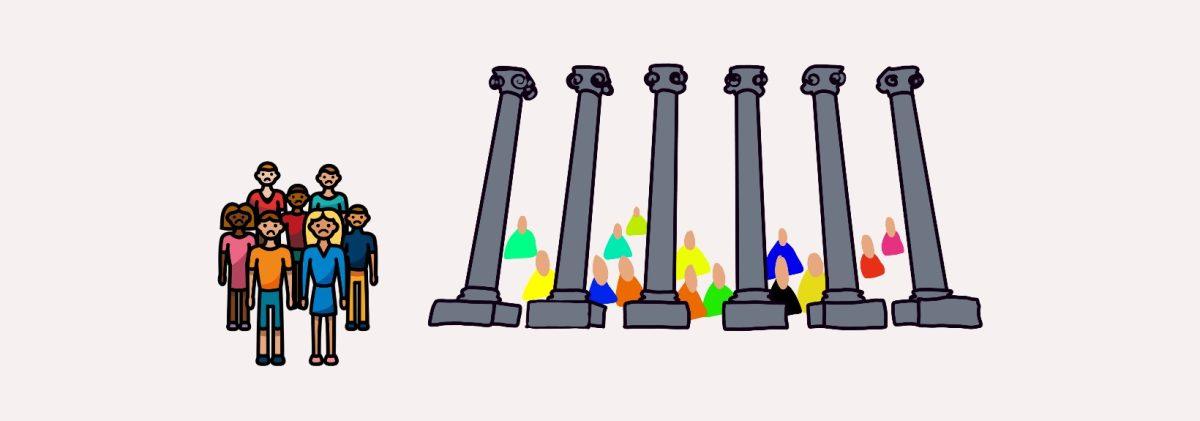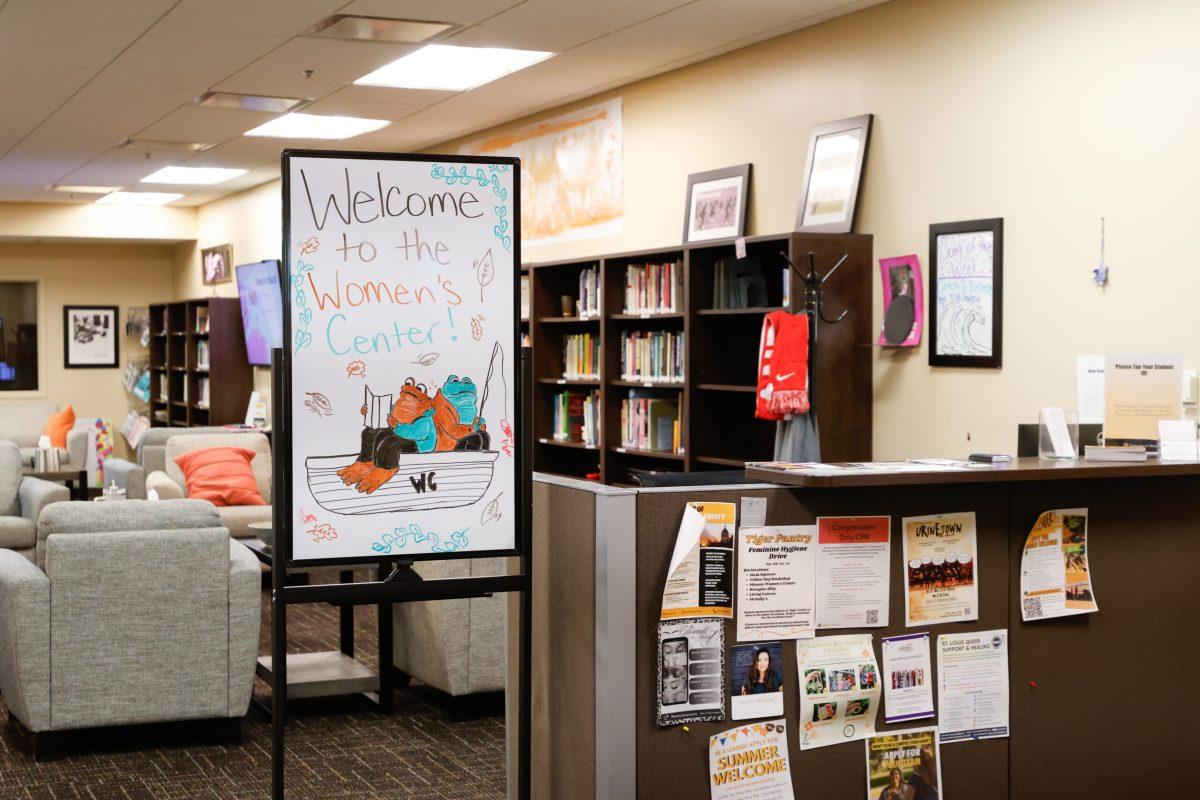Savvy Sleevar is an MU sophomore journalism major. She is an opinion columnist who writes social commentary for The Maneater.
At MU, students have the unique opportunity to depart from the college experience in the same way they entered it. Every year, hundreds of us pass through the Columns, a cathartic ritual that celebrates freshmen as they discover adulthood and congratulates seniors before they set out into the “real world.”
But what happens during the tedious years in between those two journeys through the Columns? Often, it seems like there are no accolades or even proper support systems for continuing college students.
This apparent lack of recognition for students in their “middle years” of college can result in feelings of uncertainty, especially among sophomores during the “sophomore slump.” According to a 2019 article published in Higher Education, the sophomore slump is a “focal point for declining [student] performance, persistence and satisfaction.”
Among other factors, sophomores may find their courses less enjoyable, become overwhelmed with shifting academic expectations or perceive a decline in attention from their institution. Clearly, the sophomore slump is a side effect of the unanticipated challenges unique to college’s second year.
If institutions like MU proactively acknowledged the stumbling blocks students face during different academic years, the sophomore slump would be less intimidating. Accessible, tailored support is a critical stepping stone for college’s middle years.
MU professor and author Dr. Timothy Carson revealed students can use his area of study — liminality — to identify the sophomore slump and understand why it feels so disorienting.
“Liminality [occurs when] you cross powerful thresholds of change … you leave the structure that was known before, and you cross into … the unknown — we could call that a liminal state,” Carson said.
Freshman and senior year are obvious liminal states, with freshmen adjusting to adulthood and seniors preparing to graduate. However, Carson also identified the sophomore slump as a lesser known liminal state, since these students must traverse the unknown territory of the middle years.
By thinking of the sophomore slump as a liminal state that students naturally pass through, this period may feel less intimidating. According to Carson, liminality is something of an “interpretive lens” for understanding the human experience, and using it to cope with sophomore year can provide significant relief for students.
That relief, Carson said, comes from knowing liminality’s uncertainty isn’t permanent. Instead of dreading the sophomore slump, students can see their second year as an opportunity for transformation and a time to discover a new sense of structure.
Viewing the sophomore slump as a liminal space allows students to confront it using specific tools, such as liminal guides and “communitas.”
Communitas is a group of people navigating the same liminal experience together. This makes a sophomore’s peers in their graduating class indispensable. Middle-year students bonding over common struggles during the sophomore slump can replace isolation with solidarity.
Student resources and extracurricular opportunities are notable avenues for identity development, community-building and minimizing the sophomore slump’s harmful effects through this sense of solidarity. MU senior and Missouri Students Association Legislative Assistant Danny Daugherty explained how campus resources could better accommodate sophomores’ needs.
“I think a lot of our programming is focused on incoming students and graduating students,” Daugherty said. “I’d love to see a lot more programming that is … planned with continuing students in mind.”
Daugherty said sophomores and juniors tend to be more selective when they join organizations on campus because “time becomes more and more precious as they go throughout their college career.” With this in mind, student organizations can attract sophomores by showcasing their campuswide impact instead of “just throwing up a sign-up sheet.”
Daugherty’s insight is a reminder that MU is obligated to care for students in the sophomore slump. Additionally, university resources need to be properly marketed, so all students feel comfortable accessing them in times of need.
With institutional support — and a unique way of looking at the sophomore slump — students will be better prepared to overcome liminality and boldly face the future.
Edited by Ezra Bitterman | ebitterman@themaneater.com









